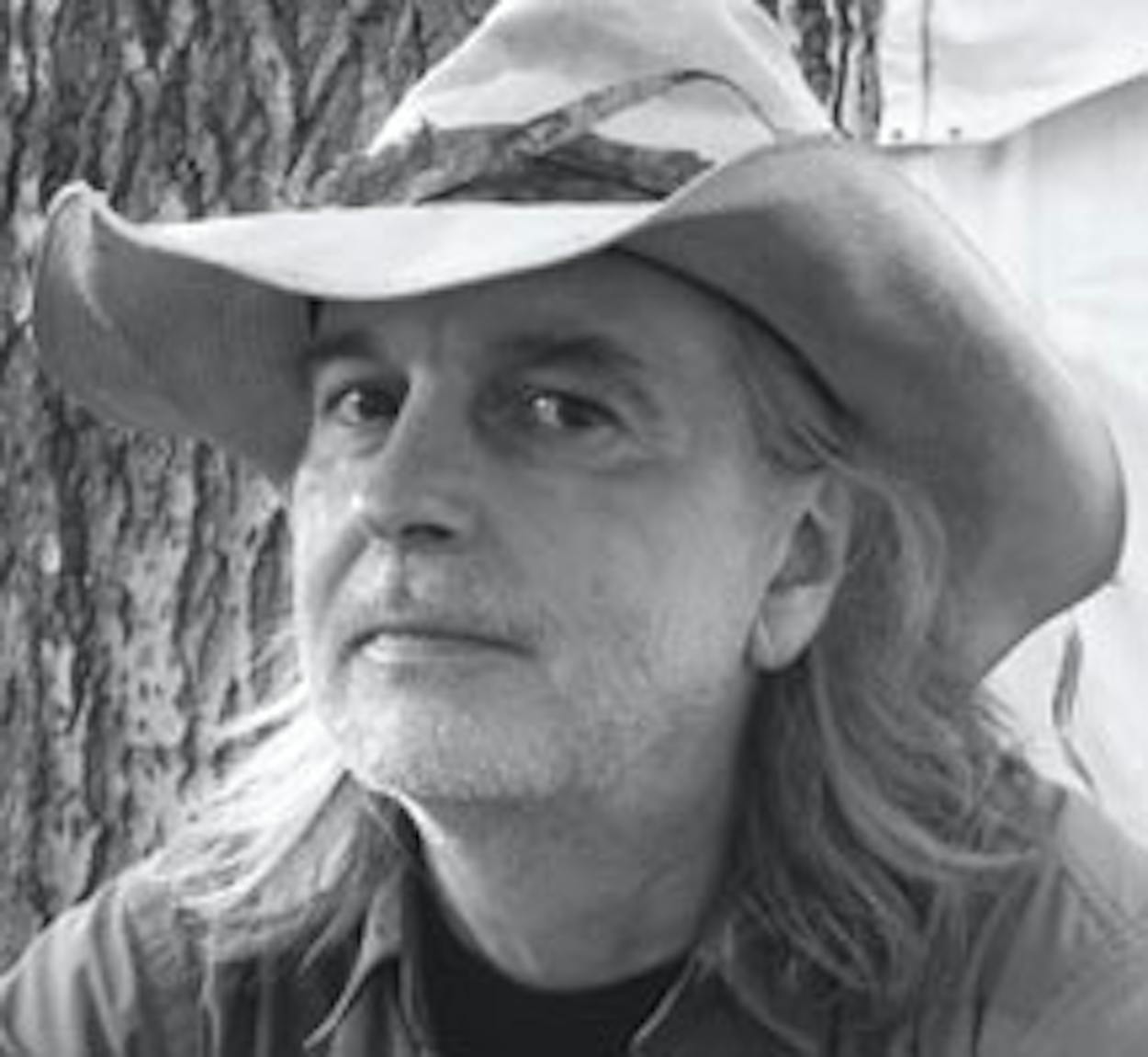The acclaimed Austin guitarist and producer (Blaze Foley, Lucinda Williams, Slaid Cleaves, Ray Wylie Hubbard) is also fast becoming known—on the basis of his 2007 album, Diamonds to Dust (Blue Corn), and this month’s LAST EXIT TO HAPPYLAND (Rootball)—as a songwriter.
You spent eleven years playing with and producing for Lucinda Williams, leaving during the Car Wheels on a Gravel Road sessions. Were those sessions really as bad as everyone’s reported? Uh, yeah. Probably worse.
What happened? There was always a balance of the music versus the rest of it. And then the scales tipped. You know, I could always walk away when it got crazy. And then all of a sudden I couldn’t. So I quit.
That was more than ten years ago. Have you reconciled? No, I haven’t spoken to her.
Was 1988’s classic Lucinda Williams the first record you ever produced? Yes. I was playing these shows with Lucinda around Hollywood, and we had a cool band and she had great songs, but we were making $8 or $10 a night—for the whole band. It was too much work for too little pay. I was trying to think of a way to tell her that I was going to quit when she called me up and said, “We have a record deal. Who’s going to produce it?” And I said, “I will!”
What made you think you could do it? I’d always been the guy in the band with the tape recorder. I knew the records I liked, and I knew how to make things sound that way.
You’re known as a musician’s musician, but in a way, you’re an anti-musician. You’re not about flash or having a lot of gear. My approach is basically simplicity. I’m not wired to hear a lot of notes. I see a record like a painting or a flower arrangement: Everything’s got its place. You start with a great song and a great singer and some great musicians, and then your job is just to not screw that up.
You didn’t make your first solo album until 2000, yet you’d been writing songs since the seventies. Yeah, I was writing songs all the while, but they weren’t any good.
Then came Diamonds to Dust, which was the work of a focused songwriter. How did that come about? I think maybe I got nodes or something [laughs]. I found my voice as a songwriter, and I found my voice as a singer. What happened was that friends of mine started dying, and I wrote about that. It was sort of a big step.
And now the new album. Do you feel you’ve had a creative songwriting burst? I write whenever the songs show up, which is usually when I’m going to bed. I’ve learned it’s really hard to write a good song. It’s not hard to write something that rhymes and doesn’t sound stupid, but it has to be better than that if it’s going to be compelling. [Singer-songwriter] Mary Gauthier told me once that she’ll rewrite a song dozens of times and spend a year or two on it if it’s not right, until she gets every syllable the way she wants it. I finally realized that that was what I needed to be doing.
The song “Voice of Midnight” is about your friend Ian McLagan and his wife, Kim, who died in an auto accident. Yeah, that song came to me late one night. I didn’t sit down to write a song about Kim. I just had that line in my head, “voice of midnight”; that’s all it was. When I got it all written down and I played it, the hair was standing up on the back of my neck, and I was like, “F—, that’s about Kim and Mac.” I’d had no idea at that point. It sort of freaked me out. I tried to play it again, and I couldn’t. That moment was pretty powerful.
“Hard Road” feels like one of the album’s centerpieces. It’s kind of an epic song. It is kind of an epic. I don’t know how I wrote this one. I know that as I was trying to make it perfect in my mind, it kept getting longer and longer. Somebody that I respect a lot at one point said, “That song’s too long.” And I thought about it, and then I added another verse. Read the full interview.







